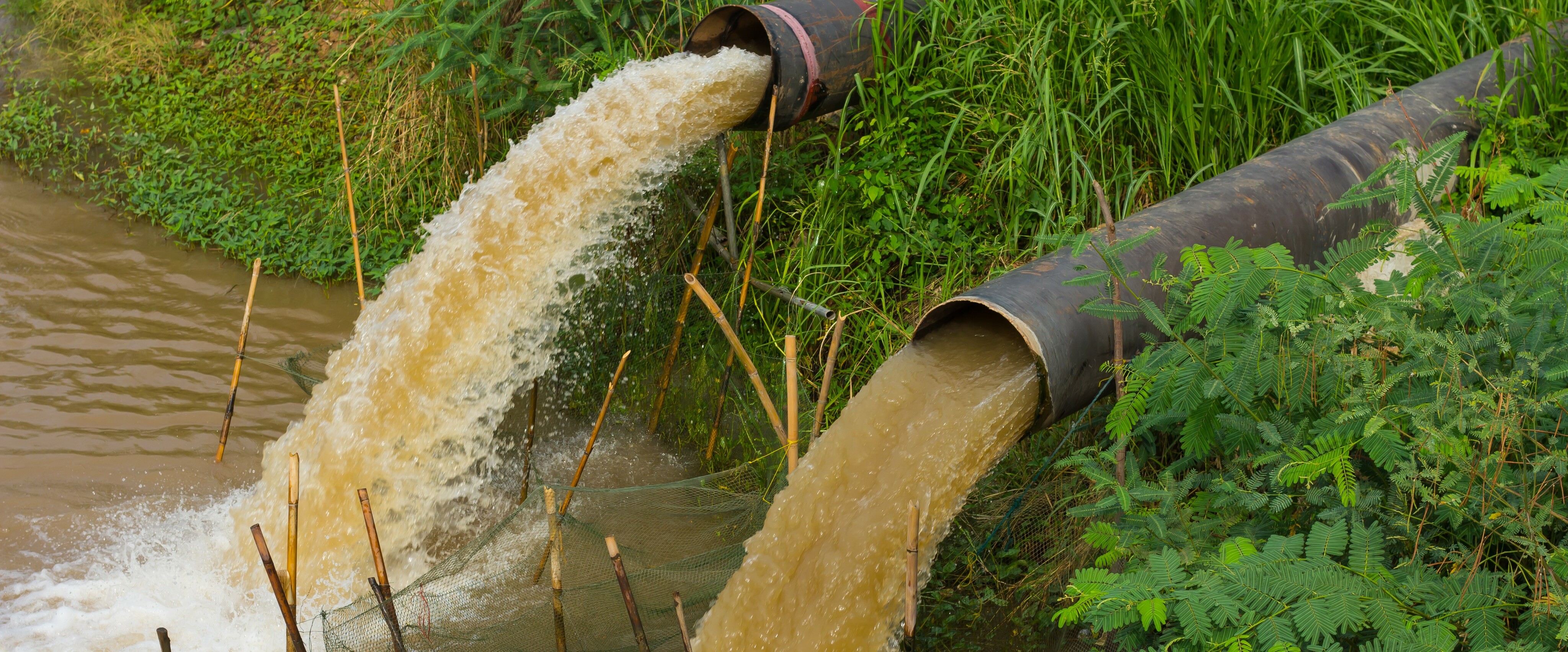
March 2024
We know the problem – water companies are using our rivers as sewers. We know the cause – a failure to investment driven by a lack of regulation. We know the solution – the regulators must enforce the law as clarified in the WildFish judicial review. And we need the OEP to act to ensure it happens.
Raw sewage enters our rivers through combined sewer overflows – pipes which connect the sewage network directly to rivers - which are designed to act as a safety valve in exceptional rainfall but are frequently mis-used in normal conditions to “add” capacity to our wastewater treatment works by bypassing treatment completely.
Under the 1994 Urban Wastewater Treatment Regulations, read together with the EU v UK case, it is illegal to discharge untreated sewage to rivers unless exceptional rainfall makes it impossible to treat.
It is clear, not least due to the excellent work of Professor Peter Hammond (WASP, 2024), that much of the discharging to rivers is currently unlawful – he has shown that much raw sewage is discharged from CSOs either when there has not been any significant rain (so-called dry spilling) and even before the treatment capacity of the sewage treatment works has been reached (so-called early spilling).
In effect, the Government and its regulators have been turning a blind eye to the law, allowing water companies to forgo investment to keep customer bills low.
The reason this has become more public recently is that, finally, we have some monitoring of CSOs. Monitors known as Event Duration Monitors (EDMs) are now on almost all CSOs – as the name suggests, they just record when and for how long CSOs discharge raw sewage. Unfortunately, this monitoring fails to capture the volume of raw sewage being spilt. We need volumetric metering to answer this question.
The main problem was, and remains, a lack of investment to meet the demands of population growth, urbanisation, climate change and wear and tear in the network.
The failure to maintain sewers is particularly acute in areas where groundwater levels are high – witness the problems besetting the Test Valley which have achieved high profile recently.
The Government’s response was simply not good enough
The Government’s response to Sir Philip Dunne MP’s Private Member’s Bill, and the relentless campaigning by eNGOs and community groups, galvanized by the indefatigable Feargal Sharkey, was to make concessions in the Environment Act 2021, including an obligation to produce a Storm Overflows Discharge Reduction Plan.
This Plan was published with much fanfare and was said to entail over £50bn of investment over the next 25 years to 2050.
However, WildFish decided to challenge this Plan in Court because it appeared to allow water companies to continue to break the law (the 1994 Regulations) for up to 25 more years.
The Plan was, in our view, a deliberate ‘smoke and mirrors’ exercise by Government to make it appear that action was being taken to curb sewage pollution, while not addressing the high level of existing illegality in water company discharges.
The Wildfish judgment
The WildFish judgment achieved its aim. It has made clear that breaches of the Urban Waste Water Treatment Regulations 1994 are not covered by the Plan.
That law requires water companies to prevent untreated sewage being released (subject to site specific use of best techniques, not involving excessive cost) unless there is exceptional weather.
Exceptional weather does not include normal or usual rainfall. It certainly does not include dry weather conditions, although we have seen many water company sewage pipes discharging untreated sewage into rivers in dry conditions over recent years.
The case also confirmed that the sewage treatment infrastructure needed to comply with the existing law must be funded by the water companies and not by customers through their water bills.
It also made it crystal clear that the Environment Agency must get on with reviewing the permits it issues to water companies under the Environmental Permitting Regulations 2016 to ensure that all the obligations of the 1994 Regulations are met.
What happens next?
WildFish and its legal team believe two clear actions are now required from the regulators:
1. Ofwat must force water companies to invest in increased sewage treatment capacity in all those locations which pass the ‘BTKNEEC’ test – which is the vast bulk of CSOs assessed to date, making it clear that the cost must be met by the water companies, not bill-payers.
2. The Environment Agency must review permits to secure compliance with the 1994 Regulations by tightening permit conditions to restrict raw sewage discharges only to those circumstances which the 1994 Regulations allow.
We have sent formal legal letters to the EA and Ofwat setting out exactly what the law requires them to do to end unlawful sewage discharges and we are in contact with the Office of Environmental Protection (OEP) to set out what the WildFish judgement now requires as part of its continuing investigation into the regulation of CSOs.
The OEP’s defining moment?
That OEP investigation into sewage was instigated by our formal complaint. As part of this investigation, the OEP has already identified failures to comply with environmental law by DEFRA, the EA and Ofwat.
Indeed, the OEP’s statement that “there may have been failures to comply with environmental law by all three of the public authorities” resonates with the judgement in the WildFish case.
But it is what the OEP does now that is hugely important.
We want to see the OEP use its statutory powers to require the Government and its regulators to enforce the 1994 Regulations. This is the OEP’s opportunity to show it has real bite.
Nick Measham is CEO at WildFish. For more information follow @WildFishCons.
The opinions expressed in this blog are the authors' and not necessarily those of the wider Link membership.

Latest Blog Posts